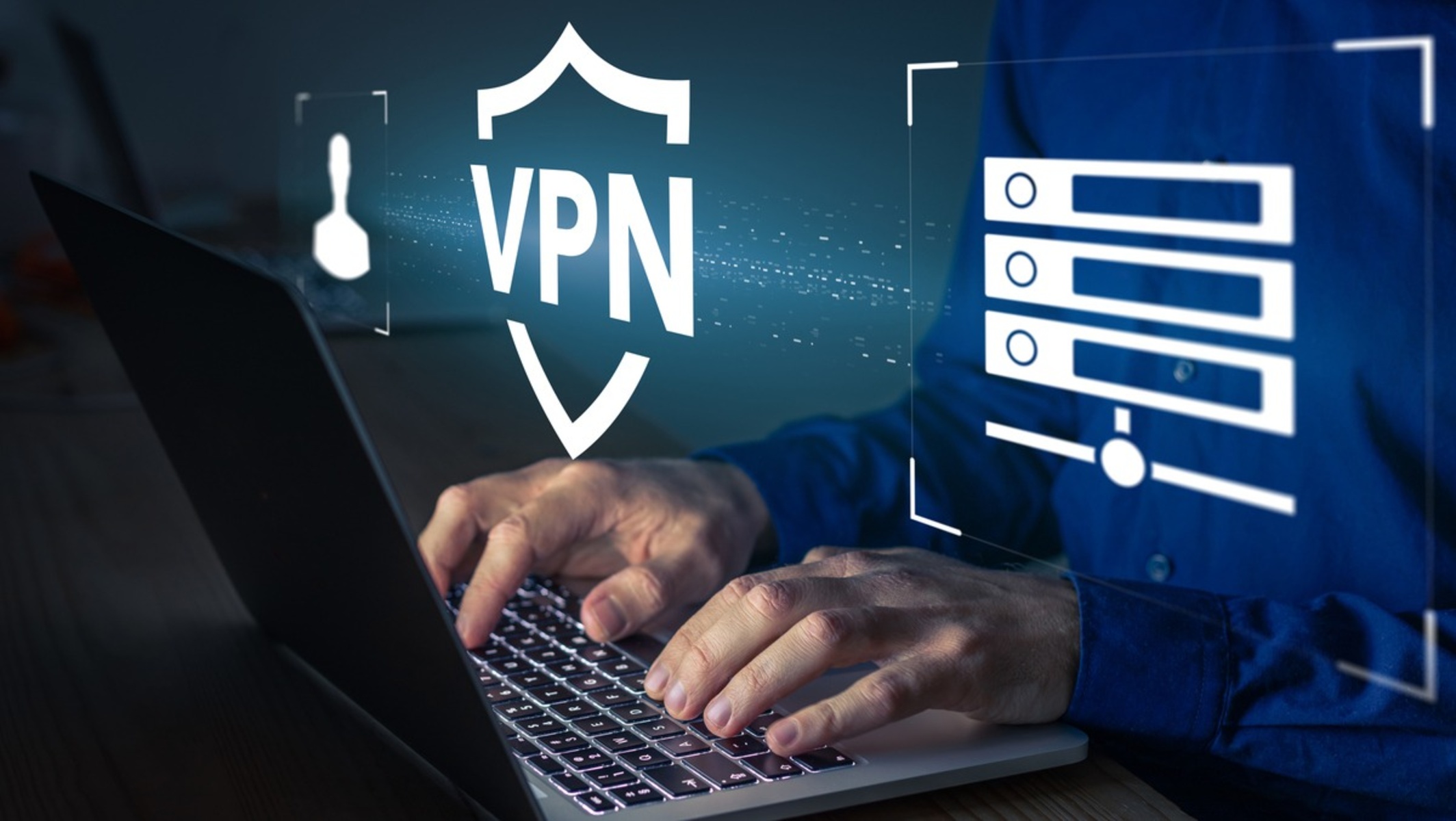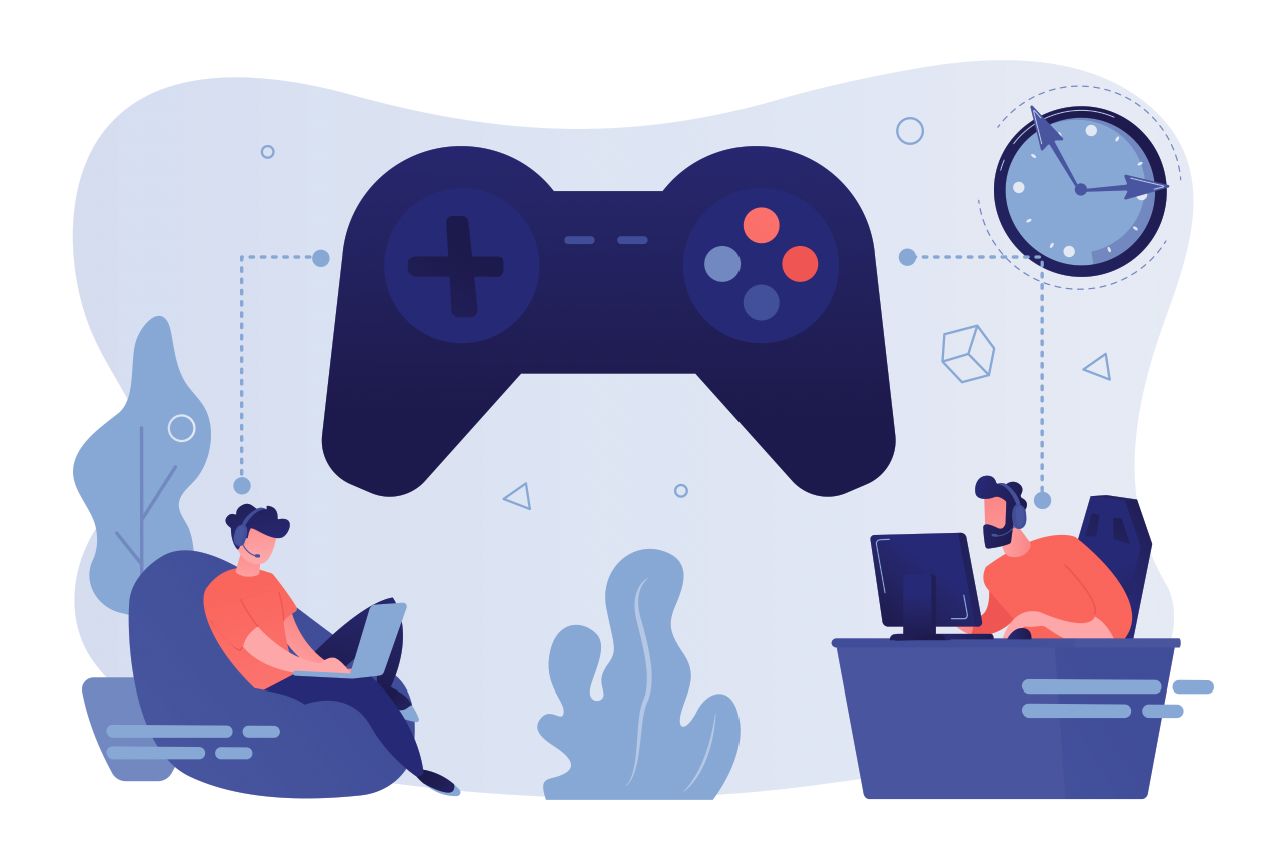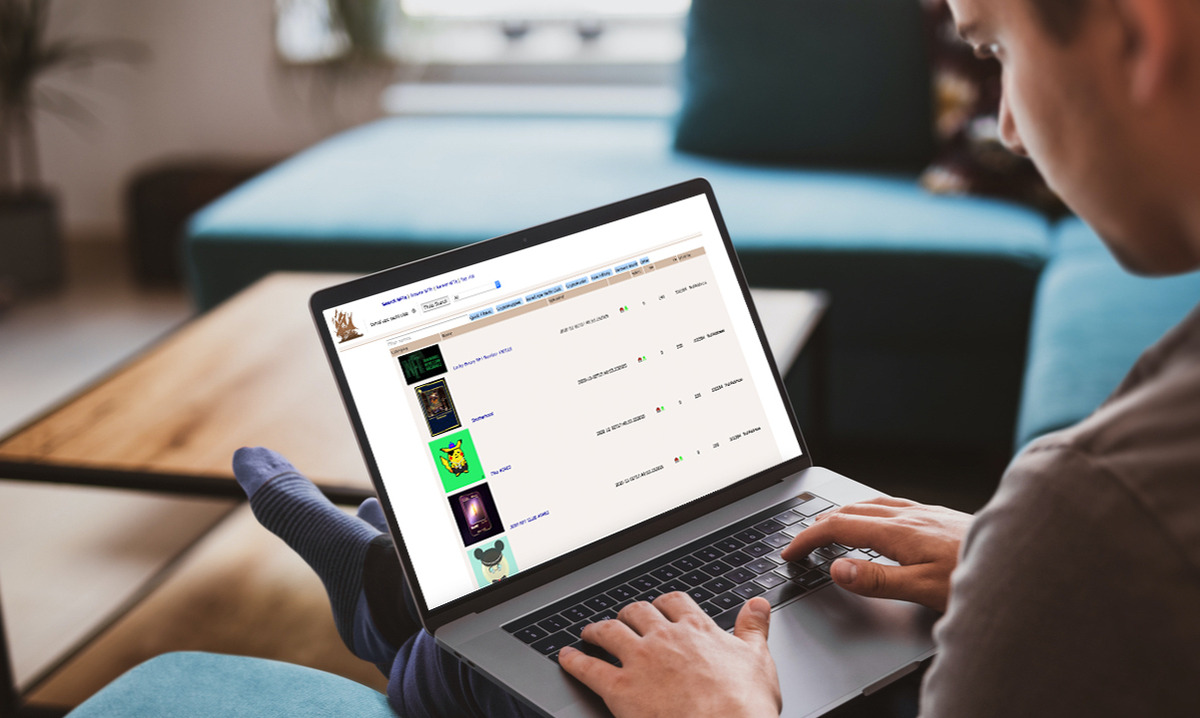What is a VPN?
A Virtual Private Network, commonly known as a VPN, is a technology that allows users to create a secure and private connection to the internet. It acts as a virtual tunnel, encrypting all the data that travels between your device and the VPN server, ensuring that your online activities are private and protected from prying eyes.
A VPN works by routing your internet traffic through a remote server in a location of your choice. When you connect to a VPN, your device creates a secure connection to the VPN server, which then acts as a middleman between you and the websites or services you access. This means that your online identity, including your IP address and location, is masked, and your internet traffic is encrypted, making it nearly impossible for anyone to intercept or monitor your online activities.
VPNs were initially developed to provide secure remote access to corporate networks, allowing employees to connect to their work resources from outside the office. However, over time, VPNs have become widely used by individuals to enhance their online privacy and security.
A VPN can be especially useful when connecting to public Wi-Fi networks, such as those found in coffee shops, airports, or hotels. These networks are often unsecured, making them prime targets for hackers who can intercept your sensitive information, such as passwords or credit card details. By using a VPN, you can protect your data from potential threats and ensure that your online activities remain private, even on untrusted networks.
Furthermore, VPNs can help bypass geographic restrictions imposed by certain websites or streaming services. For example, if a streaming service is not available in your country, you can connect to a VPN server in a location where the service is accessible. This allows you to bypass the restrictions and enjoy unrestricted access to your favorite content.
In summary, a VPN is a powerful tool that provides secure and private internet connections by encrypting your data and routing it through remote servers. It offers numerous advantages, from protecting your online privacy and security to bypassing geographic restrictions. It is essential to understand the capabilities and benefits of VPNs in order to make an informed decision about using them.
How does a VPN work?
A VPN, or Virtual Private Network, works by creating a secure and private connection between your device and the internet. It achieves this through a combination of encryption and tunneling protocols.
When you connect to a VPN, your device establishes a secure connection to a remote server operated by the VPN provider. This server acts as a middleman between your device and the websites or online services you access. Your internet traffic is encrypted before it leaves your device and is decrypted by the VPN server.
The encryption process scrambles your data, making it unreadable to anyone who might intercept it, such as hackers or government surveillance agencies. This ensures that your online activities and sensitive information, such as passwords and financial details, remain secure and private.
In addition to encryption, a VPN also uses tunneling protocols to create a private channel for your data to travel through. These protocols encapsulate your data within another layer of security, protecting it from being accessed or tampered with while in transit.
Once your data reaches the VPN server, it is decrypted and sent to its destination. From the perspective of the websites or online services you access, it appears as if your device’s IP address is that of the VPN server, masking your true identity and location.
A VPN also offers the ability to choose the location of the VPN server you connect to. By selecting a server in a different country, you can bypass geographic restrictions and access content that may be blocked in your region. This is because the websites and services you access see the VPN server’s IP address instead of yours, allowing you to appear as if you are browsing from a different location.
Overall, a VPN works by encrypting your data, routing it through a secure tunnel, and masking your IP address to provide a secure and private internet connection. It gives you the freedom to browse the web without worrying about your online activities being monitored or restricted.
Benefits of using a VPN
Using a VPN, or Virtual Private Network, offers a range of benefits that can greatly enhance your online experience. Whether you are concerned about privacy, security, or accessing restricted content, a VPN can provide you with the following advantages:
1. Enhanced Privacy: One of the key benefits of using a VPN is the assurance of online privacy. By encrypting your internet traffic and masking your IP address, a VPN ensures that your online activities remain private and your personal information is protected from prying eyes.
2. Increased Security: A VPN adds an extra layer of security to your internet connection. With the use of encryption and tunneling protocols, it prevents hackers, ISPs, or government agencies from intercepting your data or monitoring your online activities. This is especially important when connecting to public Wi-Fi networks, where the risk of cyber attacks is higher.
3. Bypassing Geographic Restrictions: Another significant advantage of using a VPN is the ability to bypass geographic restrictions. Certain websites, streaming services, or content may be inaccessible in your region, but by connecting to a VPN server in a different country, you can appear as if you are browsing from that location. This allows you to access content that would otherwise be unavailable.
4. Secure Remote Access: If you work remotely or need to access private company resources, a VPN can provide a secure connection to your organization’s network. This enables you to access files, applications, and other resources as if you were physically present in the office, ensuring your sensitive information remains protected.
5. Anonymous Browsing: By using a VPN, you can browse the internet anonymously. Your online activities are masked by the VPN server’s IP address, making it difficult for websites, advertisers, or other entities to track your online behavior or gather personal information.
6. Avoiding Bandwidth Throttling: Internet service providers (ISPs) often engage in bandwidth throttling, intentionally slowing down certain types of internet traffic. With a VPN, your ISP cannot determine the type of data you are transmitting, preventing them from throttling your connection based on the websites or applications you use.
7. Torrenting Safely: For those who engage in peer-to-peer file sharing or torrenting, a VPN can add an extra layer of security. It hides your IP address and encrypts your connection, allowing you to download or share files anonymously without worrying about copyright infringements or legal repercussions.
In summary, using a VPN offers numerous benefits such as enhanced privacy, increased security, access to restricted content, secure remote access, anonymous browsing, avoiding bandwidth throttling, and safely torrenting. By investing in a reliable VPN service, you can enjoy a safer and more unrestricted online experience.
True statements about VPNs
When it comes to Virtual Private Networks (VPNs), it is important to understand the true facts and statements surrounding their capabilities. Here are some true statements about VPNs that will help you gain a more accurate understanding:
1. VPNs provide secure and private internet connections: VPNs use encryption and tunneling protocols to ensure that your data is protected and your online activities remain private. By creating a secure connection between your device and the internet, VPNs safeguard your data from potential hackers, ISPs, and other entities.
2. VPNs encrypt data to protect it from hackers: Encryption is a crucial component of VPN technology. It scrambles your data into an unreadable form, making it nearly impossible for hackers or unauthorized individuals to decipher. This ensures that your sensitive information, such as passwords, financial details, and personal documents, remains secure while you browse the web.
3. VPNs can bypass geographic restrictions: VPNs offer the ability to bypass geographic restrictions imposed by certain websites, streaming services, or content providers. By connecting to a VPN server in a different location, you can appear as if you are browsing from that region, granting you access to content that may be blocked or restricted in your actual location.
4. VPNs can be used on multiple devices: VPNs are compatible with a wide range of devices, including computers, smartphones, tablets, and even routers. This allows you to secure your internet connection and protect your data across all your devices, providing a seamless and consistent VPN experience.
5. VPNs can slow down internet speed: While VPNs offer many advantages, it is important to note that they may have an impact on internet speed. When you connect to a VPN, your internet traffic is routed through an additional server, which can introduce some latency. However, with a reliable and well-optimized VPN service, the impact on speed is usually minimal and worth the added security and privacy benefits.
These true statements highlight the capabilities and features of VPNs. By taking advantage of a VPN’s ability to provide secure and private internet connections, encrypt data, bypass geographic restrictions, work across multiple devices, and understanding the potential impact on internet speed, you can make informed decisions about implementing a VPN in your online activities.
Statement 1: VPNs provide secure and private internet connections
One of the true statements about VPNs is that they provide secure and private internet connections. When you connect to a VPN, it creates a secure tunnel between your device and the VPN server, encrypting all the data that passes through it. This encryption ensures that your online activities are protected from unauthorized access and remain private.
With a VPN, your data is encrypted before it leaves your device and is decrypted by the VPN server. This means that even if someone intercepts your internet traffic, they won’t be able to read or make sense of the encrypted data. This is especially crucial when you are accessing the internet over unsecured public Wi-Fi networks, such as those found in coffee shops, airports, or hotels. These networks are prime targets for hackers who can intercept your data, but with a VPN, your data is protected and inaccessible to them.
In addition to encryption, a VPN also masks your IP address. Your IP address is a unique identifier that reveals your location, internet service provider, and other details. However, when you connect to a VPN server, your IP address is replaced with the server’s IP address, making it difficult for websites, advertisers, or anyone else to track your online activities or identify your real location.
A VPN also secures your online activities from your Internet Service Provider (ISP) or other network administrators. Normally, ISPs can monitor and log your internet traffic, potentially revealing sensitive information about your browsing habits. However, with a VPN, all your internet traffic is encrypted and cannot be monitored by your ISP. This adds an extra layer of privacy and prevents your ISP from seeing what websites you visit, what files you download, or any other online activities.
It is important to note that not all VPNs provide the same level of security and privacy. It is crucial to choose a reputable VPN service that has strong encryption protocols and a strict no-logs policy. A reliable VPN service will not keep any logs of your online activities, ensuring that even if compelled by authorities, they cannot provide any information about your internet usage.
In summary, VPNs provide secure and private internet connections by encrypting your data, masking your IP address, and preventing ISPs or network administrators from monitoring your online activities. By using a trustworthy VPN service, you can enjoy peace of mind knowing that your online communications and personal information are protected while browsing the internet.
Statement 2: VPNs encrypt data to protect it from hackers
Another true statement about VPNs is that they encrypt data to protect it from hackers. Encryption is a fundamental aspect of VPN technology and one of its primary purposes.
When you connect to a VPN, all the data that travels between your device and the VPN server is encrypted. Encryption involves transforming your data into a coded format that can only be deciphered with the corresponding encryption key. This process ensures that even if a hacker intercepts your data, they won’t be able to understand or make sense of it.
The encryption used by VPNs is typically military-grade, utilizing algorithms like AES (Advanced Encryption Standard) with 256-bit keys. This level of encryption is widely regarded as highly secure and virtually unbreakable, even by the most advanced hackers or supercomputers.
By encrypting your data, VPNs create a secure and private tunnel for your internet traffic. When you send or receive data, whether it’s website requests, emails, file downloads, or any other online activity, the VPN encrypts it and ensures its protection throughout its journey.
Encryption is particularly crucial when connecting to unsecured or public Wi-Fi networks. These networks are vulnerable to attacks by malicious actors who can intercept your data and gain access to sensitive information like passwords, financial details, or personal data. However, with a VPN encrypting your data, even if it is intercepted, it will be virtually impossible for hackers to decipher and misuse it.
Beyond protecting your data from hackers, encryption also safeguards your online privacy. It prevents ISPs, government agencies, or other entities from monitoring your internet activity or collecting information about your browsing habits. Encryption ensures that your online communications remain confidential and private.
It is worth noting that the strength of encryption can vary depending on the VPN service you choose. It is recommended to use a reputable VPN provider that uses strong encryption protocols and regularly updates its security measures to stay ahead of emerging threats.
In summary, VPNs encrypt data to protect it from hackers. By implementing advanced encryption algorithms, VPNs secure your data as it travels between your device and the VPN server, ensuring that even if intercepted, it remains unreadable and inaccessible to unauthorized individuals. Encryption is a crucial feature of VPNs that enhances your online security and privacy.
Statement 3: VPNs can bypass geographic restrictions
It is true that VPNs have the capability to bypass geographic restrictions imposed by certain websites, streaming services, or content providers. This feature is one of the key advantages of using a VPN.
Many online services and websites restrict access based on the geographical location of the user. This is often done due to licensing agreements, regional content availability, or government regulations. However, with a VPN, you can overcome these limitations by connecting to a VPN server located in a different country or region.
When you connect to a VPN server, your internet traffic appears to originate from that server’s location, masking your true IP address and location. This allows you to bypass geographic restrictions that might be in place, as the websites or services you are trying to access only see the VPN server’s IP address.
For example, let’s say a streaming service is only available in the United States. If you are located outside the US and try to access the service, you will likely encounter a restriction message. However, by connecting to a VPN server located in the US, your IP address will be replaced with a US IP address, fooling the streaming service into thinking you are accessing from within the country. This gives you the ability to bypass the geographic restriction and enjoy the content that is otherwise unavailable in your region.
In addition to accessing streaming services, VPNs can also help bypass restrictions on social media platforms, news websites, or other websites that may be inaccessible or censored in certain countries. By connecting to a VPN server in a country with unrestricted access, you can browse the internet freely, unencumbered by any regional limitations or censorship.
However, it is important to note that while a VPN can bypass most geographic restrictions, there are cases where certain websites or services have advanced technologies in place to detect and block VPN usage. These measures are typically in place to enforce content licensing agreements or prevent unauthorized access. Despite this, a reputable VPN service provider will constantly update its servers and IP addresses to ensure access to a wide range of content.
Overall, VPNs provide the means to bypass geographic restrictions and access content that might otherwise be unavailable in your region. By connecting to a VPN server in a different location, you can enjoy a more open and unrestricted online experience.
Statement 4: VPNs can be used on multiple devices
One true statement about VPNs is that they can be used on multiple devices, providing a flexible and versatile solution for securing your internet connection. Whether you have a laptop, smartphone, tablet, or even a smart TV, a VPN allows you to protect your online activities across all your devices.
A reputable VPN service will offer support for various operating systems, including Windows, macOS, iOS, Android, and Linux. This ensures compatibility with a wide range of devices, allowing you to use the VPN on your preferred platform.
Setting up a VPN on multiple devices is typically straightforward. After subscribing to a VPN service, you can usually download and install the corresponding app or software on each device you want to protect. Once installed, you can log in to your VPN account and connect to a desired server to establish a secure connection.
Using a VPN on multiple devices offers several benefits:
1. Consistent Protection: By using a VPN on all your devices, you ensure that your internet traffic is consistently protected across all platforms. Whether you are browsing the web, streaming content, or conducting online banking, your data remains encrypted, regardless of the device you are using.
2. Versatile Privacy: VPNs provide privacy not only for your laptop or desktop but also for your mobile devices. This is especially important as smartphones and tablets are commonly used for accessing personal accounts, social media, and other sensitive information on the go. A VPN ensures that your online activities, regardless of the device, are shielded from prying eyes.
3. Secure Public Wi-Fi: Public Wi-Fi networks can be a breeding ground for cyber attacks. By using a VPN on your mobile devices, you can protect your data when connecting to these unsecured networks. Whether you’re using a coffee shop’s Wi-Fi or an airport hotspot, a VPN creates a secure tunnel between your device and the VPN server, preventing hackers from intercepting your data.
4. Family Protection: Many VPN providers allow for simultaneous connections on multiple devices. This means that you can protect not only your own devices but also those of your family members. By installing the VPN app on each family member’s device, you can secure the internet connections of your loved ones as well.
It is worth noting that some VPN providers may have limitations on the number of devices that can be connected simultaneously. Before choosing a VPN service, it’s important to review their device limit policies to ensure they meet your needs.
In summary, VPNs can be used on multiple devices, offering a convenient and comprehensive solution for securing your online activities. By protecting all your devices with a VPN, you can enjoy consistent privacy and security across various platforms, ensuring that your data remains secure regardless of the device you are using.
Statement 5: VPNs can slow down internet speed
It is true that using a VPN can potentially slow down your internet speed. When you connect to a VPN, your internet traffic is routed through an additional server before reaching its destination. This extra step, along with the encryption and decryption processes, can introduce some latency and impact the speed of your connection.
The extent of the impact on your internet speed when using a VPN can vary depending on various factors:
1. VPN Server Distance: The distance between your location and the VPN server you connect to can affect the speed. Connecting to a VPN server that is geographically far away from you may introduce more latency, resulting in slower speeds.
2. Server Load: The number of users connected to a particular VPN server can also influence the speed. If a server is experiencing high traffic or is overloaded with users, it could result in slower speeds for everyone connected to that server.
3. Encryption Strength: The level of encryption used by a VPN can impact the speed as well. Stronger encryption algorithms, such as AES-256, may require more processing power, potentially causing a slight slowdown in your internet speed.
While using a VPN may result in some decrease in speed, it is important to note that with a reputable and well-optimized VPN service, the impact is usually minimal and may not be noticeable in regular browsing or streaming activities. The advancement in VPN technology has led to significant improvements in encryption algorithms and server infrastructure, enabling faster and more efficient VPN connections.
It’s also worth mentioning that the benefits of using a VPN, such as enhanced security, privacy, and the ability to bypass geographic restrictions, often outweigh the potential decrease in speed. In many cases, the slight reduction in speed is a trade-off for the added benefits of using a VPN.
If you experience significant speed issues with your VPN, there are a few steps you can take to mitigate the impact:
1. Connect to a Nearby Server: Opt for a VPN server that is geographically closer to your location to reduce latency and improve speed.
2. Try Different Protocols: VPNs offer different encryption protocols. If you are experiencing slow speeds, try switching to a different protocol that may be more efficient, such as WireGuard or OpenVPN with UDP.
3. Upgrade Internet Connection: Ensure that your internet connection itself is robust and capable of delivering high speeds. Upgrading to a faster internet plan can help mitigate any speed issues, alongside using a VPN.
In summary, it is true that VPNs can slow down internet speed to some extent due to the additional steps involved in encrypting and routing your internet traffic. However, with a well-optimized VPN service and careful consideration of server location and encryption protocol, the impact on speed is usually minimal and does not undermine the benefits of using a VPN to enhance your online security and privacy.
Importance of understanding the true facts about VPNs
Understanding the true facts about Virtual Private Networks (VPNs) is crucial for making informed decisions about your online security, privacy, and access to content. With the abundance of information and misconceptions surrounding VPNs, it is essential to have a clear understanding of their capabilities and benefits.
By grasping the true facts about VPNs, you can:
1. Make Informed Decisions: When choosing a VPN service, understanding their capabilities and features allows you to make an educated decision. Knowing that VPNs provide secure and private internet connections, encrypt data, and can bypass geographic restrictions ensures that you select a VPN service that aligns with your specific needs.
2. Safeguard Your Online Privacy: By recognizing that VPNs offer secure and private internet connections, you can actively protect your online privacy. VPNs encrypt your data, mask your IP address, and prevent unauthorized access to your online activities. With this knowledge, you can confidently browse, shop, and communicate online, knowing that your personal information is shielded from prying eyes.
3. Access Restricted Content: Understanding that VPNs can bypass geographic restrictions empowers you to access content that may otherwise be unavailable in your region. Whether it’s streaming services, social media platforms, or news websites, VPNs offer the ability to connect to servers in different locations, granting you unrestricted access to online content.
4. Enhance Your Online Security: Knowing that VPNs can encrypt data to protect it from hackers emphasizes the importance of using a VPN, especially when connected to unsecured public Wi-Fi networks. By encrypting your internet traffic, VPNs shield your personal information from potential hackers, ensuring that your online activities remain secure and your sensitive data is protected.
5. Empower Multiple Device Protection: Recognizing that VPNs can be used on multiple devices enables you to secure all your internet-connected devices, from laptops and smartphones to tablets and smart TVs. By extending VPN protection across your devices, you can maintain a consistent level of privacy and security, regardless of the platform you are using.
6. Manage Expectations: Understanding that using a VPN may potentially result in a slight decrease in internet speed sets realistic expectations. While VPNs can introduce some latency, this trade-off for enhanced security and privacy is often worthwhile. Being aware of this allows you to troubleshoot and optimize your VPN connection accordingly.
Ultimately, understanding the true facts about VPNs ensures that you can fully leverage their capabilities and benefits while making informed decisions based on your specific needs. By choosing a reputable VPN service, protecting your privacy, accessing restricted content, and enhancing your online security becomes more attainable, empowering you to navigate the digital landscape with confidence and peace of mind.

























